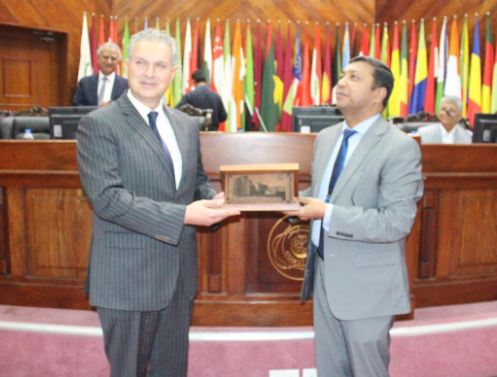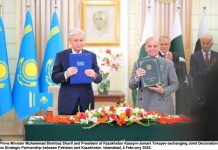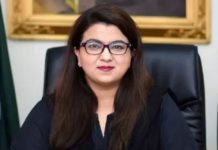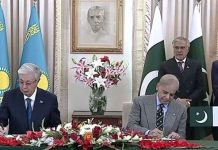ISLAMABAD, Jan 26 (APP/DNA): Coordinator General of COMSTECH, Prof Dr M Iqbal Choudhary, said on Friday that SESAME has the potential to transform the entire scientific landscape of the Middle East and OIC region for good.
Inaugurating the OIC SESAME Users two-day meeting, Prof Choudhary said that the SESAME (Synchrotron Light for Experimental Science in the Middle East) is the most important and expensive scientific facility available in the entire developing region. He said that SESAME is an elaborate, expensive, and impactful facility in the OIC region. He expressed his thanks to the government of Jordan for hosting this facility.
Prof Choudhary said that by using this huge infrastructure, researchers can perform experiments not only in a much better, more precise, and more efficient manner, but they can also conduct scientific studies that are not possible without such a facility. He said that OIC-COMSTECH is pleased to work with SESAME and its users to facilitate its use in the least developed member states.
Prof Choudhary mentioned that we are discussing the possibility of holding three SESAME user meetings in Nigeria for Anglophone Africa, Senegal for Francophone Africa, and Kazakhstan for Central Asia. Prof Choudhary mentioned that COMSTECH offered 25 travel grants annually to SESAME users from LDC and OIC countries.
The Ambassador of Jordan, Dr Maen Khreasat, as chief guest of the inaugural session, said that our collective focus is on the future and advancing our understanding of the scientific and technical marvels within the domain of synchrotron beamlines and their diverse applications.
He said that SESAME stands as a beacon for collaboration, bringing together minds from across the OIC member states to push the boundaries of knowledge and innovation.
Dr Khreasat said that Jordan, as the host country for SESAME, has played a pivotal role in fostering an environment that encourages scientific inquiry and cross-cultural collaboration. He said that Jordan has committed itself to providing the necessary resources and support to ensure the success of SESAME.
Dr Khreasat said that the partnership between COMSTECH and SESAME serves as a shining example of diplomacy through science. This collaboration is a testament to the belief that, by working together, we can overcome obstacles and build a brighter future for all. He said that the collaboration between COMSTECH and SESAME holds immense promise for the Middle East.
Dr Khreasat said that as we celebrate the achievements of SESAME, it is crucial to highlight the bilateral relations between Jordan and Pakistan. The ties between the two nations are deeply rooted in history, culture, and shared values.
He said Jordan and Pakistan can explore opportunities for joint research initiatives, academic exchanges, and technology transfer. He said, Let us continue to build bridges, both scientific and diplomatic, and work towards a future where the pursuit of knowledge knows no borders.
The Director General of Science and Technology of the Organization of Islamic Cooperation Saudi Arabia, Dr Abdur Noor Sekendi, was the guest of honor. He appreciated the organization of the SESAME Users Meeting by COMSTECH. He said SESAME is a beacon of collaboration.
He said that through such collaborative efforts, we can help overcome challenges, and he encouraged the participants of the meeting to enhance networking for enhanced collaboration.
The UK’s representative on the SESAME Council, Prof Dr Samar Hasnain, said in his lecture that SESAME has brought scientific development, economic prosperity, and people together. He shared the economic impact of SESAME. He lamented that, unfortunately, we are largely consumers of knowledge rather than the creators of knowledge.
He appreciated the emerging partnership between the SESAME and COMSTECH for the scientific development of OIC countries. Administrative Director, SESAME Prof Dr Atef Elkadime, was the keynote speaker. He gave a comprehensive presentation on the establishment, history, achievements, and future plans of the SESAME.
He invited all to visit SESAME and benefit from this facility for their research work. Experts from the UK, France, Jordan, and Pakistan have delivered lectures, whereas more than 100 participants attended the event in person and online.

















